Filter by

Paul and the Self: Apostolic Teaching for Personal Wholeness
The apostle Paul writes of an individual in conflict, with self, others, and God. The loser on this battlefield is truly a winner. A careful integration of social science and New Testament study interprets Paul's insights into the self, New Testament scholar J. Knox Chamblin presents what is essentially a systematic theology of the self.
- Edition
- -
- ISBN/ISSN
- 0801025729
- Collation
- Hardcover; 285 hlm.; 16 x 23.5 cm
- Series Title
- -
- Call Number
- 227
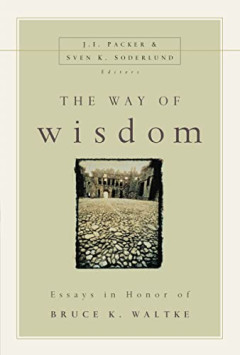
The Way of Wisdom: Essays in Honor of Bruce K. Waltke
"Wisdom is supreme; therefore get wisdom. Though it cost all you have, get understanding." -Proverbs 4:7 (NIV) When a man's life embodies the pursuit of wisdom, it bears among its fruits the deep love and respect of his family, friends, and colleagues. Bruce K. Waltke is such a man. Wisdom has defined Dr. Waltke, both as one of his personal qualities and as the core of his many years of biblica…
- Edition
- -
- ISBN/ISSN
- 9780310227281
- Collation
- Softcover, 332 hlm, 15x23cm
- Series Title
- -
- Call Number
- 223.06
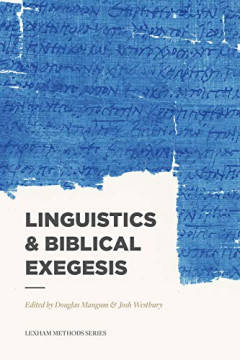
Linguistics & Biblical Exegesis
We rarely think about the way languages work because communicating in our native tongue comes so naturally to us. The Bible was written in ancient Hebrew, Aramaic, and Greek-languages no modern reader can claim to have a native understanding of. A better understanding of how language works should help us understand the Bible better as we seek to discern the original intent and meaning of each b…
- Edition
- -
- ISBN/ISSN
- 9781577996644
- Collation
- Softcover, 232 hlm, 15x23cm
- Series Title
- Lexham Methods Series
- Call Number
- 220.601

Social & Historical Approaches to the Bible
The Bible was not written and received in a historical vacuum-in fact, the social and historical context of the Bible illuminates key understandings that may have been otherwise missed. Biblical scholars use many different approaches to uncover this context, each engaging various aspects of the social and historical world of the Bible-from religious ritual to scribal practice to historical even…
- Edition
- -
- ISBN/ISSN
- 9781577996651
- Collation
- Softcover, 256 hlm, 15x23cm
- Series Title
- Lexham Methods Series
- Call Number
- 225.95
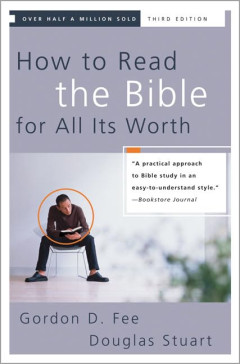
How to Read the Bible for All Its Worth
Understanding the Bible isn't for the few, the gifted, the scholarly. The Bible is accessible. It's meant to be read and comprehended by everyone from armchair readers to seminary students. A few essential insights into the Bible can clear up a lot of misconceptions and help you grasp the meaning of Scripture and its application to your 21st-century life. More than half a million people have t…
- Edition
- 3
- ISBN/ISSN
- 9780310246046
- Collation
- Softcover, 287 hlm, 13.5x20cm
- Series Title
- -
- Call Number
- 220.61
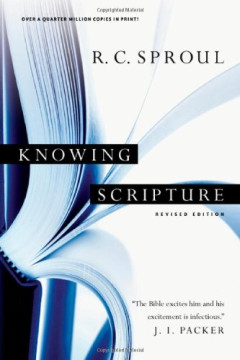
Knowing Scripture
"~The Bible is the written Word of God, and it is treasured by many. But it is also an ancient book about people and cultures very different than us. Thus, while we know we should read it, many of us have a hard time understanding the Bible. In this updated edition of Knowing Scripture, R. C. Sproul helps us dig out the meaning of Scripture for ourselves. The author says, ""The theme of this bo…
- Edition
- 2
- ISBN/ISSN
- 9780830837236
- Collation
- Softcover, 152 hlm, 14x21cm
- Series Title
- -
- Call Number
- 220.071
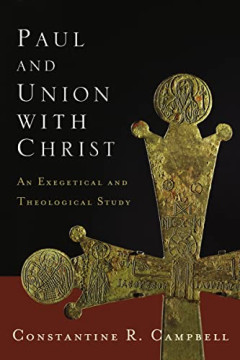
Paul and Union with Christ: An Exegetical and Theological Study
Winner of the Christianity Today 2014 Book Award in Biblical Studies, Paul and Union with Christ fills the gap for biblical scholars, theologians, and pastors pondering and debating the meaning of union with Christ. Following a selective survey of the scholarly work on union with Christ through the twentieth century to the present day, Greek scholar Constantine Campbell carefully examines every…
- Edition
- -
- ISBN/ISSN
- 9780310329053
- Collation
- Softcover, 479 hlm, 15x22cm
- Series Title
- -
- Call Number
- 227.06

The Reading and Preaching of the Scriptures in the Worship of the Christian C…
The Reading and Preaching of the Scriptures in the Worship of the Christian Church is a multivolume study by Hughes Oliphant Old that canvasses the history of preaching from the words of Moses at Mount Sinai through modern times. Volume 2, The Patristic Age, continues Old's historical survey by focusing on preaching as it was developed and practiced by the Greek schools of Alexandria and Antioc…
- Edition
- 1
- ISBN/ISSN
- 9780802843579
- Collation
- Softcover; 481 hlm.; 15 x 23 cm
- Series Title
- The Reading and Preaching of the Scriptures in the Worship of the Christian Church
- Call Number
- -
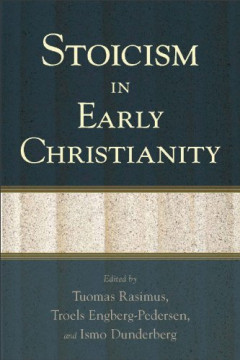
Stoicism in Early Christianity
How usefully do distinctly Stoic ideas illuminate the meaning of first and second century texts? This book suggests that early Christians—the authors of New Testament and noncanonical writings, including some early apologies—were often more influenced by Stoicism than by Middle Platonism. This insight sheds an entirely new light on the relationship between philosophy and religion at the bir…
- Edition
- -
- ISBN/ISSN
- 9780801039515
- Collation
- Softcover; 314 hlm.; 14.99 x 22.61 cm
- Series Title
- -
- Call Number
- 261.2
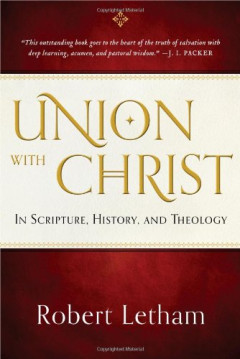
Union with Christ: In Scripture, History, and Theology
Union with Christ is the central truth of the whole biblical teaching about salvation. The entirety of our relationship with God can be summed up in this doctrine. Yet when people ask what this union actually is, we flounder. The incarnation shows that God has made us to be united with him, and God has given us his Word to enable us to understand the nature of this union. Set out with Robert Le…
- Edition
- -
- ISBN/ISSN
- 9781596380639
- Collation
- Softcover, 164 hlm, 15x23cm
- Series Title
- -
- Call Number
- 232.8
 Computer Science, Information & General Works
Computer Science, Information & General Works  Philosophy & Psychology
Philosophy & Psychology  Religion
Religion  Social Sciences
Social Sciences  Language
Language  Pure Science
Pure Science  Applied Sciences
Applied Sciences  Art & Recreation
Art & Recreation  Literature
Literature  History & Geography
History & Geography